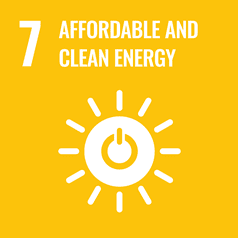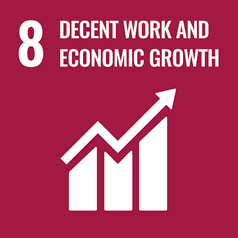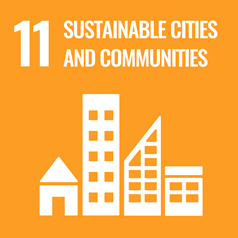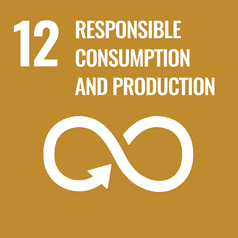As the election looms with promises of jobs and economic growth, university research has the potential to turn slogan into reality.
Successful ventures like renewable power pioneers, Diffuse Energy, show how integral it is to invest in the country’s most innovative ideas - ensuring the benefits remain in our local communities rather than perpetuating a move offshore.
According to the ABC Vote Compass, the most important issue for those heading to the polls this month is climate change – with 29% of respondents marking it as their top concern.
Creating a cleaner future is within reach, according to inventor of new small wind technology and University of Newcastle alumnus and honorary lecturer, Dr Joss Kesby.
As the co-founder and CEO of Diffuse Energy, Dr Kesby believes their small wind turbines are the safest and most powerful of its kind on the market.
His mission is to empower Australians to produce their own energy, while delivering a proven return on investment.
We've had over one and a half million dollars of investment from Australian venture capitalists,” Dr Kesby explained.
The investment includes $400,000 in seed funding from Australian venture capital fund, Shearwater Growth Equity. The company has also received state funding as part of the New South Wales government Minimum Viable Product (MVP) scheme.
The work has proved to be financially profitable, with real benefits lying in the liberation of individuals and businesses.
“The use of small wind turbines and the transition to clean power will save money on rising energy prices, reduce emissions to lower the impact on the environment, and dramatically improve system resilience and reliability,” Dr Kesby said.
“We've now got our systems operating on sites with some of the biggest telco’s in Australia and are starting to get into the New Zealand market, and looking even further abroad.”
New approaches to reducing carbon emissions are part of what makes the University of Newcastle a hub for sustainability.
The institution was named number one in the world for partnering for a more sustainable future in the 2021 Times Higher Education (THE) Impact Rankings, and most recently in THE’s top 50 for ten of the 2022 Sustainable Development Goals.
It was here that the Diffuse Energy small wind turbine was developed.
In an office on campus, Dr Kesby recalls developing his PhD as an engineering student amongst other innovative minds – like Dr Alex Post.
“We actually had a bit of a competition about who would submit their thesis first and all that,” Dr Kesby laughed.
Dr Post would also go onto successful pursuits, creating a new type of thermal storage material with potential to convert coal-fired power stations to run entirely fossil-fuel free.
The company, called MGA Thermal, has received more than $5 million in funding.
Facilitated through the University of Newcastle’s new ventures network, I2N, Diffuse Energy and MGA Thermal joined the CSIRO’s accelerate program – an accelerator for research teams to validate and develop high potential innovative ventures.
What began as one case of PhD students researching side-by-side, is now changing the way energy is produced and consumed across the country.
Dr Kesby and the Diffuse Energy team currently have 17 business partners, with plans to expand further.

Small wind technology by Diffuse Energy is helping to deliver a cleaner future

Diffuse Energy’s small wind turbines are said to be the safest and most powerful of its kind on the market.
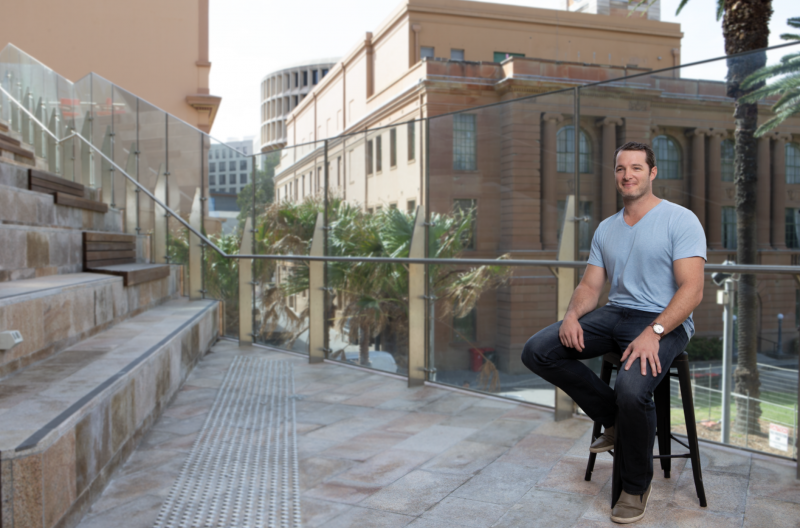
Co-founder and CEO of Diffuse Energy, Dr Joss Kesby, wants all Australians to be in control of their own power.
High capital for new cancer therapy
For some university research, the leap from theory to practice can be a long and winding road.
Theories are developed, tried and tested without the financial means to fulfil the potential to do incredible things.
In the case of ImmVirX, a Newcastle-based biotechnology company, securing investment has unlocked a key to treating some of the most prevalent and challenging cancer types.
It’s been an inspiring journey for ImmVirX co-founder, Professor Darren Shafren, since completing his Bachelor of Science (Honours) and PhD at the University of Newcastle.
The company has now raised more than $20 million in capital, with strong support from a group of Australian funds including lead investor Acorn Capital – a Melbourne-based fund which specialises in emerging Australian companies.
As the Chief Scientific Officer and Hunter Medical Research Institute (HMRI) affiliate researcher, Professor Shafren, began ImmVirX back in 2019.
It was his second successful venture, after ‘Viralytics’ – Professor Shafren’s ASX-listed company developing cancer treatment technology to target melanoma - was sold for A$502 million in 2018, marking one of the largest biotech sales in Australia’s history.
“It’s a similar strategy to the one we employed with Viralytics, using a selected virus to increase the efficacy of the new immune checkpoint inhibitors when treating tumours,” Professor Shafren said.
"ImmVirX will focus on colorectal cancer, ovarian cancer, gastric, and pancreatic cancer. We know the value it can provide, and it’s a formula that’s worked for us previously when looking to take things to market.”
As a private enterprise, the company has continued its research and development at the Hunter Medical Research Institute (HMRI) and is supported by The University of Newcastle Research Associates (TUNRA).
This long-held partnership has also been extended to 2024.
While the investor-led technology does bring in record-breaking figures, the original purpose for Professor Shafren is to improve outcomes for patients with cancer.
Their goal is even closer to being realised as the team progresses toward clinical trials.
ImmVirX and Viralytics are examples of what could have been a major loss for the global community, had the challenges of commercialisation left this ground-breaking technology lying dormant in the research drawer.

ImmVirX co-founder, Professor Darren Shafren, is determined to improve outcomes for cancer patients.

ImmVirX scientists are developing novel oncolytic viruses to treat some of the most prevalent and challenging cancer types.
Quality teaching for quality future
According to the latest data from the Organisation for Economic Co-operation and Development (OECD), domestic investment into research and development in Australia has been largely on the decline since 2008.
In 2022, there has been broad support that new world thinking within universities requires further funding.
The University Research Commercialisation Action Plan was announced in February this year by the Federal Government, totalling $2.276 billion over 11 years.
Despite heading to the polls come May 21, Australian communities are regaining a sense of normality – returning to campus, workplaces, functions and public arenas, and dealing with the challenges of our newfound normal.
There should be thoughtful consideration for those heading back to a place completely upended over the past two years – the classroom.
Now, more than ever in a post-pandemic world, there is need for government and industry to ensure essential services, such as teaching, are resourced and able to continue their important work.
When discussing a topic like commercialised research, lines can be drawn quickly to those in lab coats or hard hats. However, data show that the service sector is the largest job provider in the country, accounting for more than 70% of employment (OECD) and delivering a raft of financial outcomes.
Arguably, it’s the humanities and social sciences that are paving the way and moulding the minds of the next generation.
Quality Teaching Rounds (QTR), delivered by the Quality Teaching Academy, is an evidence-based approach to supporting teachers and realising the potential of our education system.
The professional development program, developed by Laureate Professor Jenny Gore and her colleague, Dr Julie Bowe, enables teachers to analyse and reflect on their practice through a collaborative, teacher-driven framework.
Professor Gore’s work as an academic in education began in 1984 and she has since channelled that wealth of experience into ensuring greater equity through schooling.
After a challenging period for teachers, students and families due to COVID - the work of the QT Academy is crucial to future outcomes.
“It actually means more than the act of teaching to the values, theories and evidence that justify the way teachers work,” Professor Gore explained.
“Our long-term program of research at the University is producing exciting results. The approach we take is not only showing an impact on the quality of teaching, but positive effects on teacher morale, which has never been more important than it is right now with the pressures on teachers during the past couple of years.”
“And, really importantly, it's showing impact on student achievement.”
Research conducted by Professor Gore’s team found QTR improves student outcomes by up to 25% and positively impacts school culture.
The idea for the QT Academy began as a mind map nearly a decade ago, and very nearly suffered the fate of so many other great ideas.
After presenting her research at a conference in 2014, Professor Gore was asked the question, ‘what’s to stop this from going to scale?’
Professor Gore said the prospect of scaling was relatively rare in education where limited funds for research and commercialisation, and firm boundaries around state-based schooling systems, were major challenges.
In 2018, an investment by philanthropic organisation, the Paul Ramsay Foundation, totalling $17.2 million, made it possible to create a ‘vehicle’ for commercialisation – the QT Academy.
“This has made it possible to be doing 20 years’ worth of research in five years,” she said.
“It's a dream to have this level of support because we can actually take QTR to scale, along with ongoing research and a host of commercialisation activities that are usually not even conceivable in education.”
“Practically, this commercialisation effort has already benefited more than 3,500 teachers and 500,000 students, setting an example of the possibilities for a return on investment from social sciences research,” she said.
An independent cost-benefit analysis conducted by Deloitte Access Economics found QTR returned at least $40 in gross state product for every dollar invested and that the increases in student achievement, extrapolated over a student’s school life and beyond, can lead to broader societal improvements in health and civic participation.
Underpinned by a strong partnership with the New South Wales Department of Education, QTR has already expanded to three other states and territories (Queensland, Victoria and the ACT).
In the lead up to the Federal election, both major parties have announced funding commitments to expand Quality Teaching Rounds nationally, and growing international interest in the approach and the QT Academy signals the potential for wide-scale adoption.

Research shows the Quality Teaching Rounds improves student outcomes by up to 25%.

Laureate Professor Jenny Gore is dedicated to ensuring greater equity through schooling.

Professional development program, Quality Teaching Rounds, has already benefited more than 3,500 teachers and 500,000 students.
While the outcomes of research are overwhelmingly positive, opportunities and incentives for researchers to commercialise can be scarce.
Following recent pressures of university funding cuts and loss of revenue due to international student absence, there are challenges for taking research to market and a need for help to bridge the gap.
Academics are already tasked with juggling teaching, intensive grant application processes and preparing the next generation of researchers. Commercialisation efforts need support from experts to assist with activities such as customer validation, market analysis and developing a sustainable business model, in order to generate impactful products.
What is clear is that a brighter, cleaner and healthier future is possible when we see universities, industry, and government partner together to invest in supporting pathways for research to have real-world impact.
